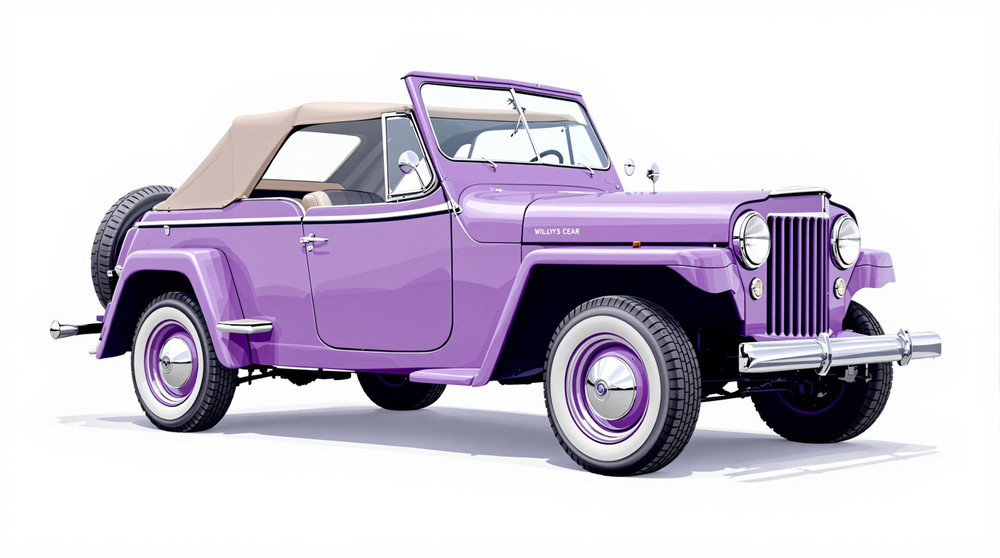Image of 1950 Willys Jeepster, Note: These illustrations use artistic license and may differ from actual historical models.
Performance Metrics
Fundamental Metrics
Emotional Appeal
MMP Rating
| Engine Specifications | |
|---|---|
| Engine: | L-134 "Go Devil" I4 |
| Displacement: | 134 cu in (2.2 L) |
| Horsepower: | 60-63 hp |
| Torque: | 105 lb-ft |
| Compression Ratio: | 6.48:1 |
| Ignition System: | Battery and coil |
| Cooling System: | Liquid-cooled |
| Performance Specifications | |
| 0-60 Time: | Estimated 20-25 seconds |
| 1/4 Mile Time: | Not available |
| Top Speed: | 65 mph |
| Transmission and Drive | |
| Drive Type: | Rear-wheel drive (RWD) |
| Transmission Type: | 3-speed manual with optional overdrive |
| Fuel and Efficiency | |
| Fuel System Type: | Carburetor |
| MPG: | Estimated 15-20 mpg |
| Dimensions and Brakes | |
| Brakes: | Hydraulic drum brakes |
| Wheelbase: | 104 inches |
| Weight: | 2,420 lbs |
Note: Specifications for classic cars are given to the best of our ability, considering the limited and variant data available.
Unveiling the Charm of the 1950 Willys Jeepster
The 1950 Willys Jeepster is a vehicle that captures the essence of post-war optimism, a time when America was eager to embrace leisure and the open road. Born from the legendary Willys-Overland company, renowned for its wartime Jeep production, the Jeepster was an attempt to translate rugged utility into a lifestyle vehicle. This open-top car stood out as a unique blend of utilitarian design and passenger comfort, making it an intriguing chapter in automotive history. A particularly notable moment for the Jeepster was its role in transitioning from military to civilian life, symbolizing America's peacetime prosperity.
Design and Innovation
The exterior of the 1950 Willys Jeepster boasted a distinctive aesthetic that merged a military pedigree with a touch of post-war flair. Its upright grille, round headlights, and high-riding stance were complemented by a playful convertible top and stylish chrome accents. Inside, passengers were treated to a no-frills but charming interior, where functionality reigned supreme. Materials were durable rather than luxurious, reflecting the vehicle's utilitarian roots. Technologically, it featured innovations like independent front suspension—a rarity at the time. Color options ranged from conservative hues to more vibrant tones, with pastel blues and greens being popular choices among enthusiasts. The most iconic body style was undoubtedly the VJ-3 Phaeton—a two-door convertible that exuded casual fun.
Historical Significance
The 1950 Willys Jeepster was not just another car; it was an emblem of transition. It bridged the gap between military service and civilian leisure, influencing future designs that would prioritize versatility and enjoyment. While it didn't set sales records, its impact on automotive design was evident in how it paved the way for recreational vehicles that would follow.
Performance and Handling
Underneath its hood, the 1950 Willys Jeepster was modest by today's standards but respectable in its era. With a top speed hovering around 65 mph and acceleration from 0-60 mph in about 20 seconds, it wasn't built for speed but rather for reliable cruising. Handling was straightforward with a sturdy feel over bumps and adequate composure on windy roads. Driving a Jeepster was about enjoying the journey—the hum of its inline-four engine, the wind in your hair, and a connection with the machine that modern cars often lack.
Ownership Experience
The Jeepster found its niche among those who appreciated its dual-purpose nature—equally at home as a daily driver or as a weekend showpiece. Its maintenance was relatively simple due to its shared DNA with military Jeeps, making repairs manageable for even amateur mechanics.
Fun Facts
The Jeepster holds a special place in history with several fun tidbits to its name. It's said that fewer than 20,000 units were produced during its three-year production run, making surviving models quite rare today. Celebrities and collectors have been known to own Jeepsters, adding to their allure. While it never broke any speed records, it did win hearts with its charm and versatility.
Collector's Information
Today's collector market values the 1950 Willys Jeepster as a unique piece of Americana with prices ranging widely based on condition—from around $10,000 for a project car to upwards of $30,000 or more for well-restored examples. As they become scarcer, well-maintained Jeepsters are slowly appreciating in value.
Conclusion
The 1950 Willys Jeepster stands as more than just an automobile; it's a symbol of American resilience and innovation post-WWII. Though not without its quirks or criticisms—such as modest power output and limited production—it has carved out its niche in automotive history as an endearing classic that continues to captivate enthusiasts around the globe.
1950 Willys Jeepster Catalog of Parts
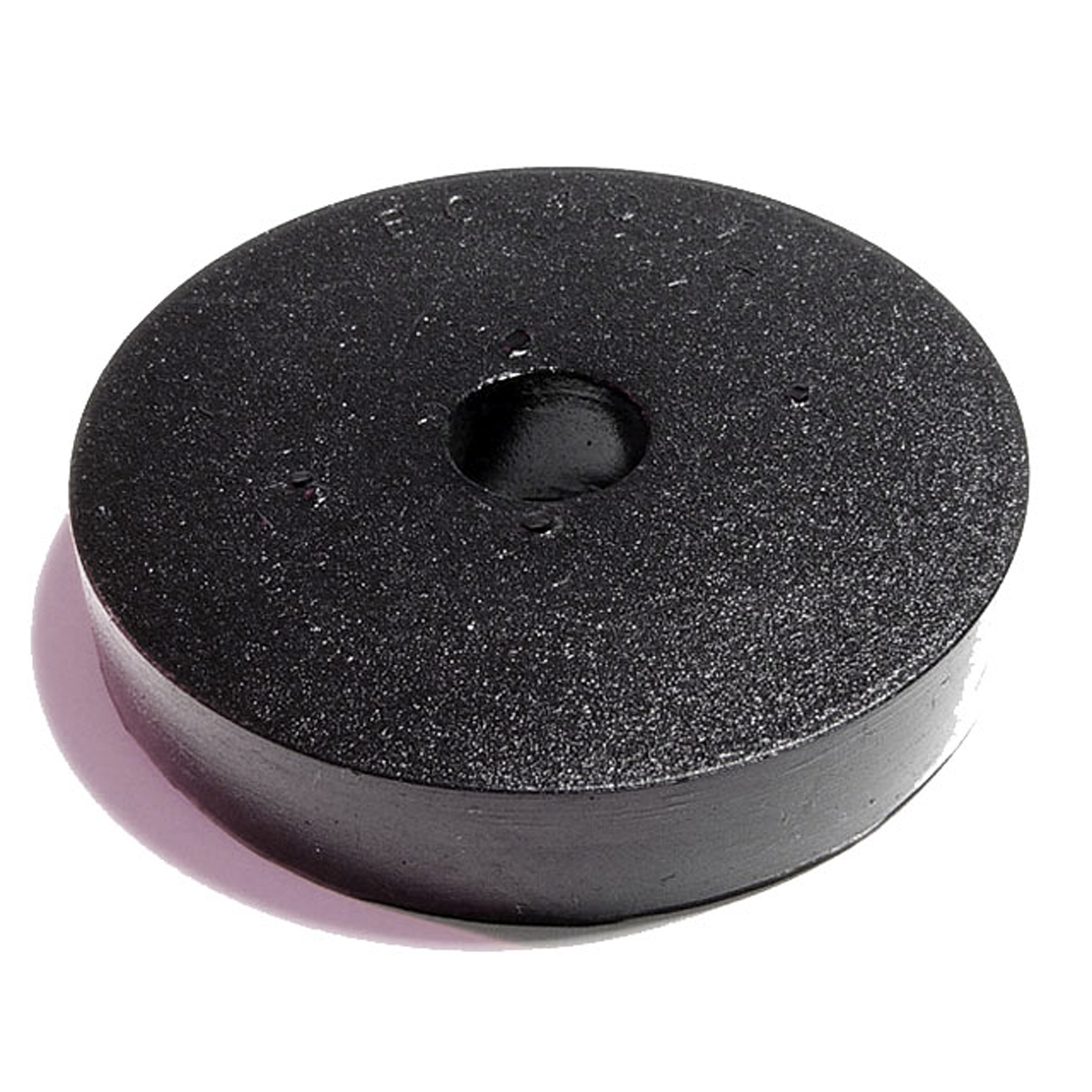 1950 Willys JEEPSTER Body Mount Cushion. 1-15/16" O.D., 3/8" I.D., 3/8" Thick-BC 40-ABody Mount Cushion. 1-15/16" O.D., 3/8" I.D., 3/8" Thick. Each
1950 Willys JEEPSTER Body Mount Cushion. 1-15/16" O.D., 3/8" I.D., 3/8" Thick-BC 40-ABody Mount Cushion. 1-15/16" O.D., 3/8" I.D., 3/8" Thick. Each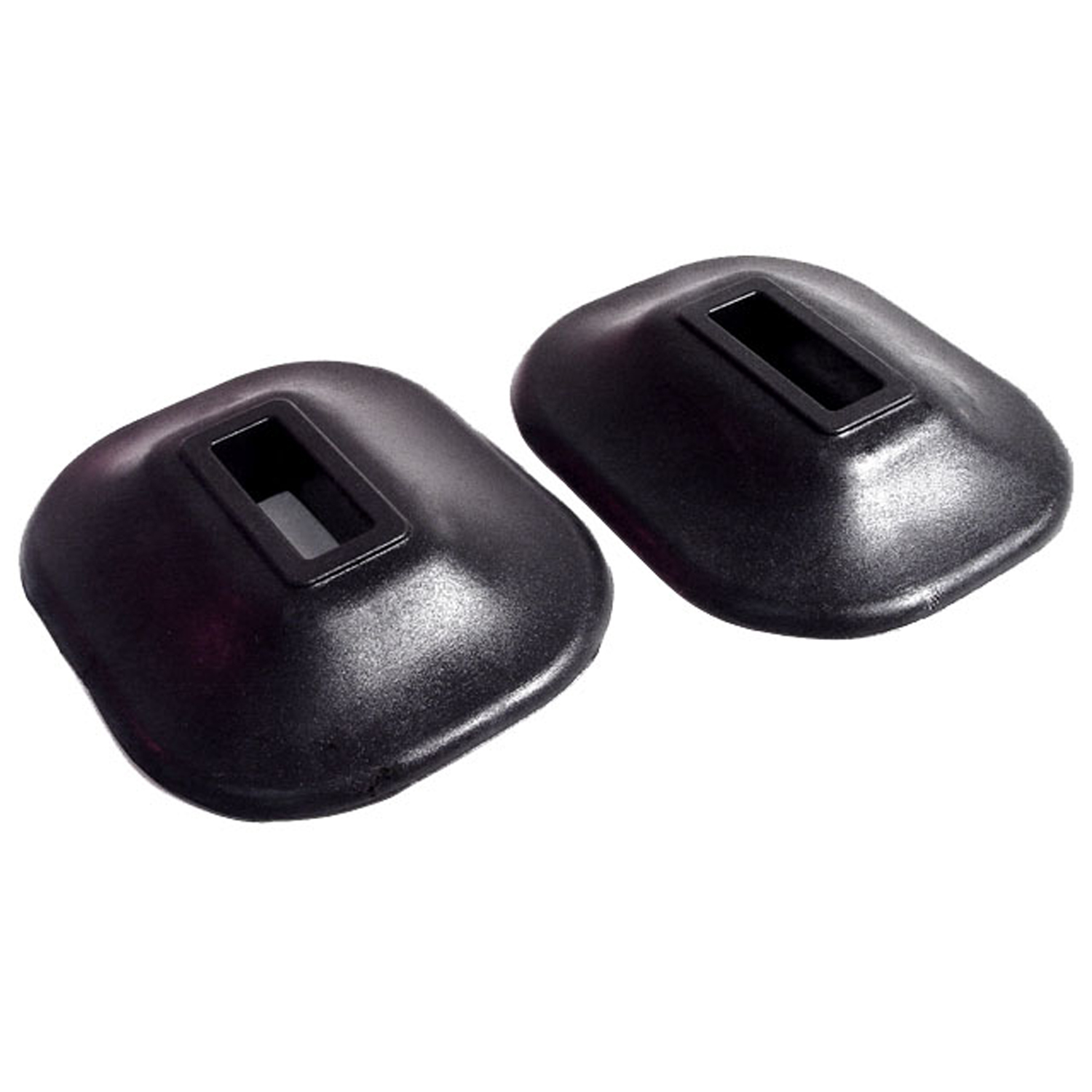 1950 Willys JEEPSTER Front and Rear Bumper Arm Grommets-BG 62Front and Rear Bumper Arm Grommets. 3-1/8" wide X 3-7/8" long, with 1-3/8" long inner slot. Pair
1950 Willys JEEPSTER Front and Rear Bumper Arm Grommets-BG 62Front and Rear Bumper Arm Grommets. 3-1/8" wide X 3-7/8" long, with 1-3/8" long inner slot. Pair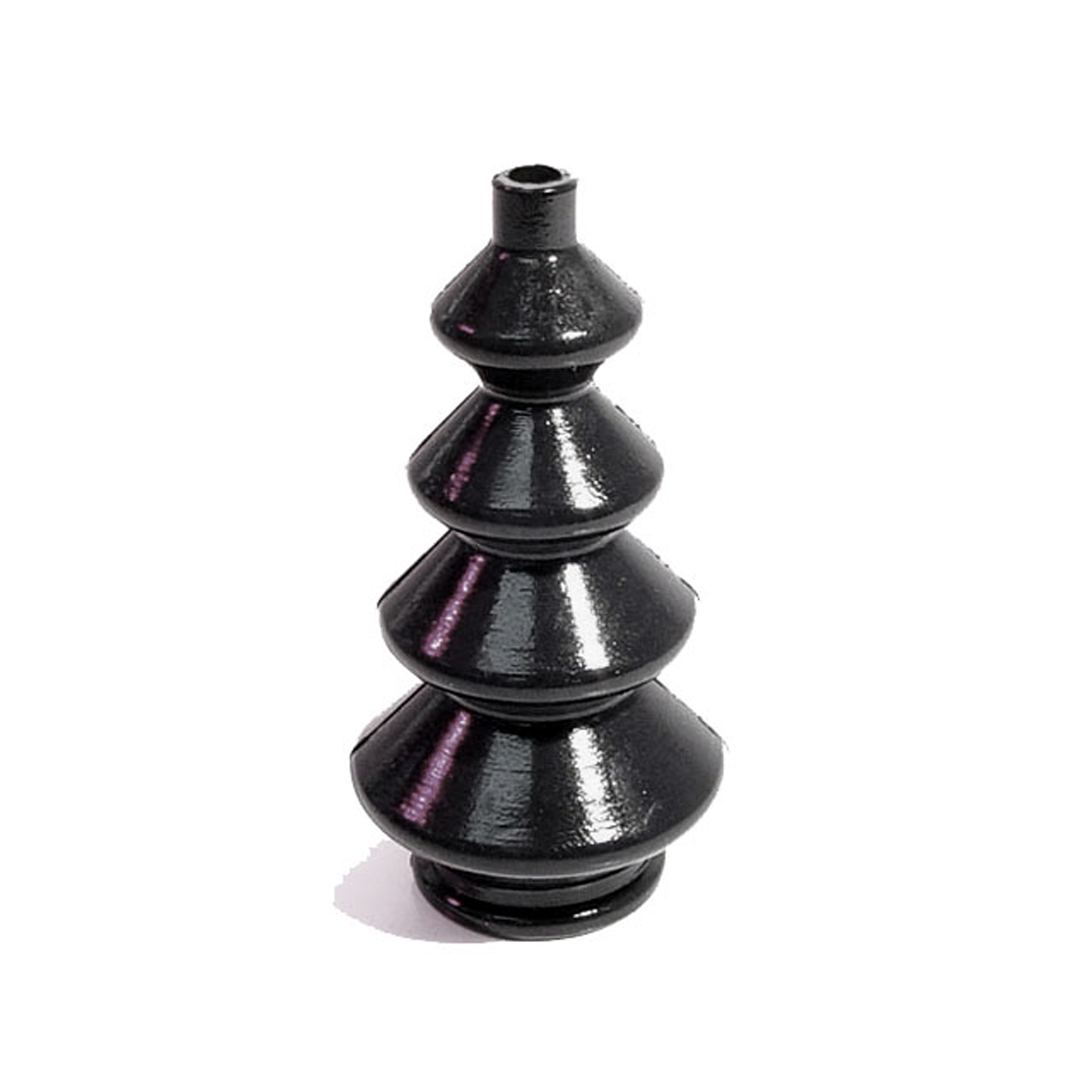 1950 Willys JEEPSTER Accelerator Rod Bellows Dust Boot. 3/16" top I.D-BL 7Accelerator Rod Bellows Dust Boot. 3/16" top I.D., 1" bottom I.D., 3-1/2" high (compresses to 1-3/4"). Highest quality available. Each
1950 Willys JEEPSTER Accelerator Rod Bellows Dust Boot. 3/16" top I.D-BL 7Accelerator Rod Bellows Dust Boot. 3/16" top I.D., 1" bottom I.D., 3-1/2" high (compresses to 1-3/4"). Highest quality available. Each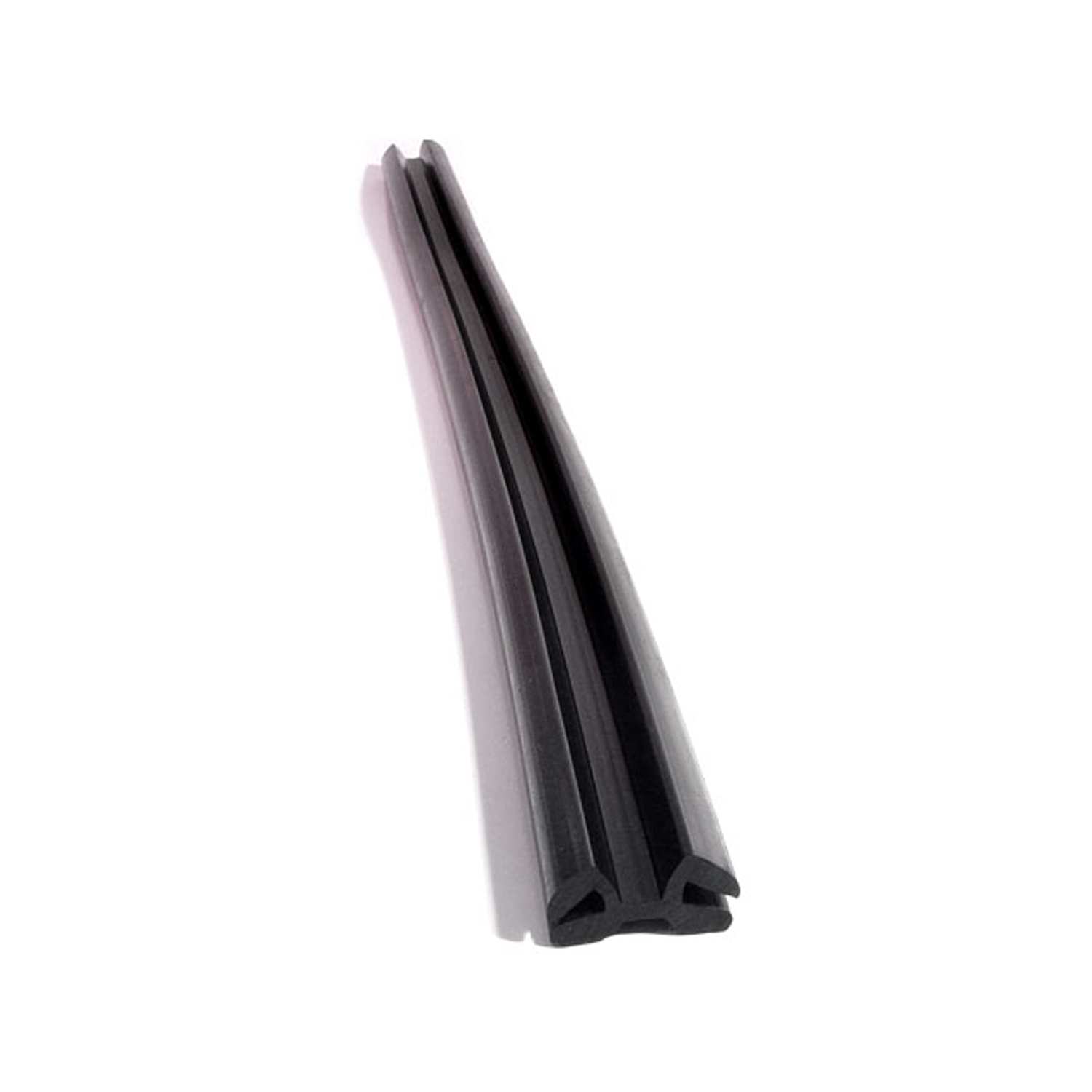 1950 Willys JEEPSTER Center Division Bar Seal. 20" piece, to be cut to length-DP 40Center Division Bar Seal. 20" piece, to be cut to length. Each
1950 Willys JEEPSTER Center Division Bar Seal. 20" piece, to be cut to length-DP 40Center Division Bar Seal. 20" piece, to be cut to length. Each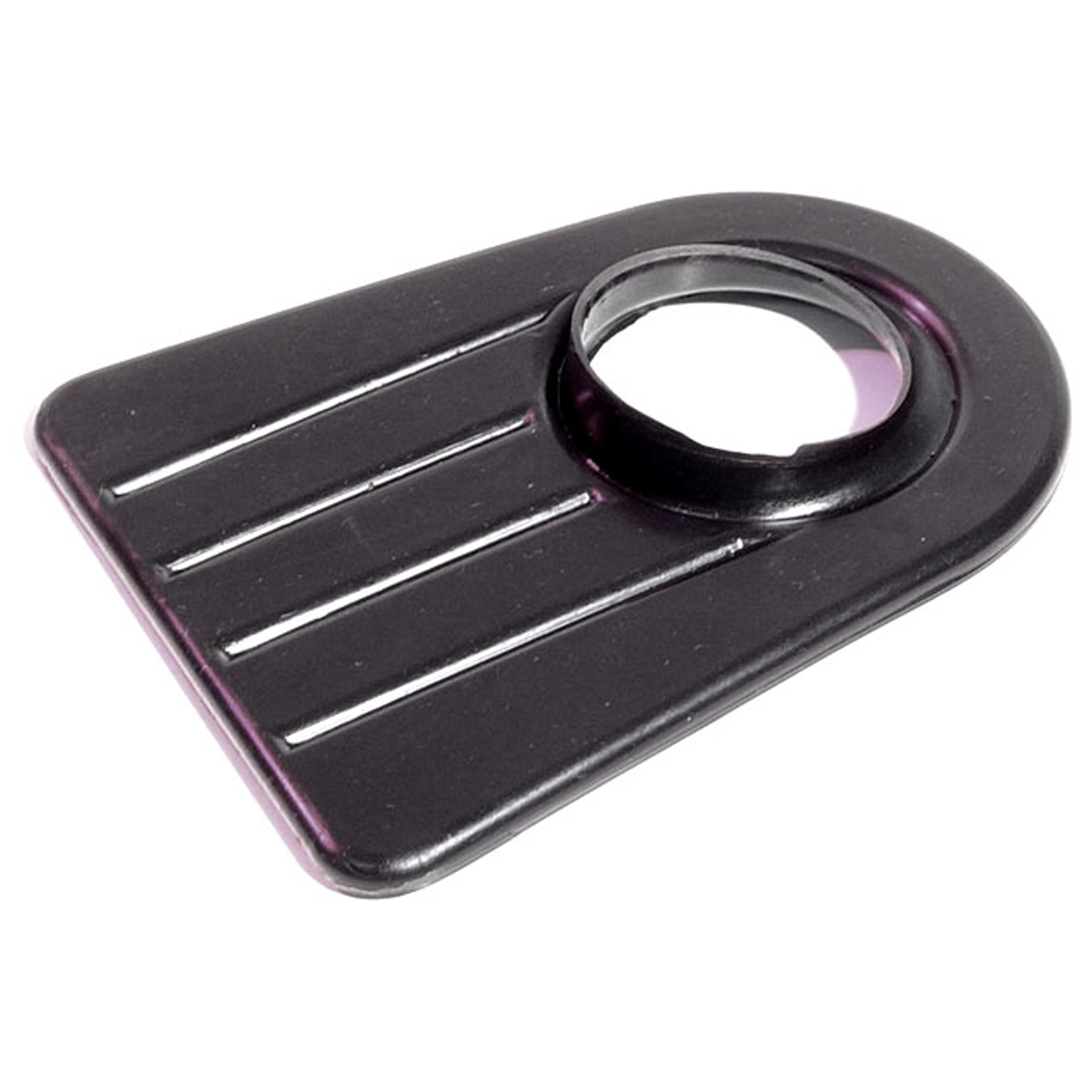 1950 Willys JEEPSTER Gas Filler Grommet. 2-1/8" I.D., 6-3/8" length. Each-GF 29-AGas Filler Grommet. 2-1/8" I.D., 6-3/8" length. Each
1950 Willys JEEPSTER Gas Filler Grommet. 2-1/8" I.D., 6-3/8" length. Each-GF 29-AGas Filler Grommet. 2-1/8" I.D., 6-3/8" length. Each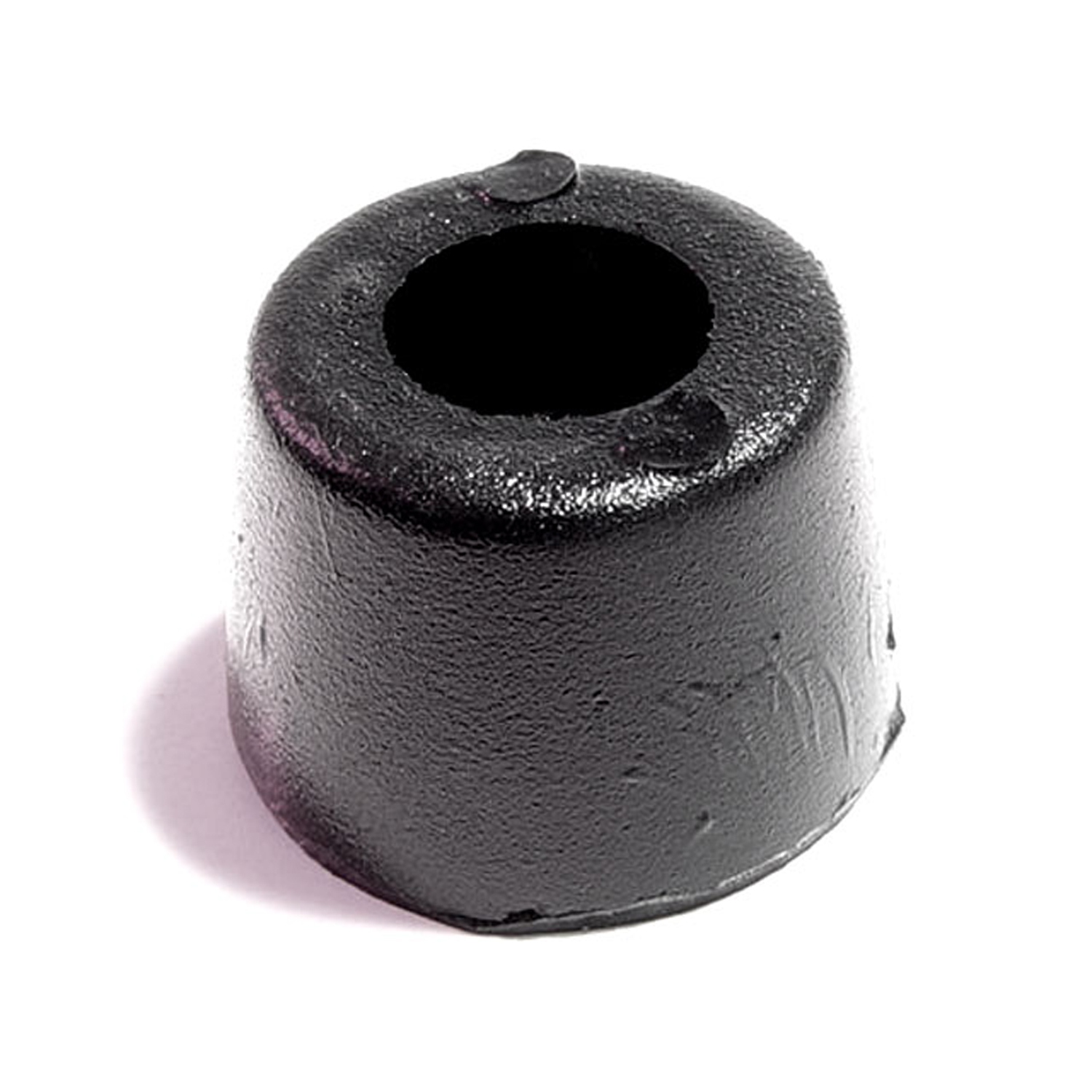 1950 Willys JEEPSTER Hood Side Bumper. Two used per car. Each-HF 31Hood Side Bumper. Two used per car. Each
1950 Willys JEEPSTER Hood Side Bumper. Two used per car. Each-HF 31Hood Side Bumper. Two used per car. Each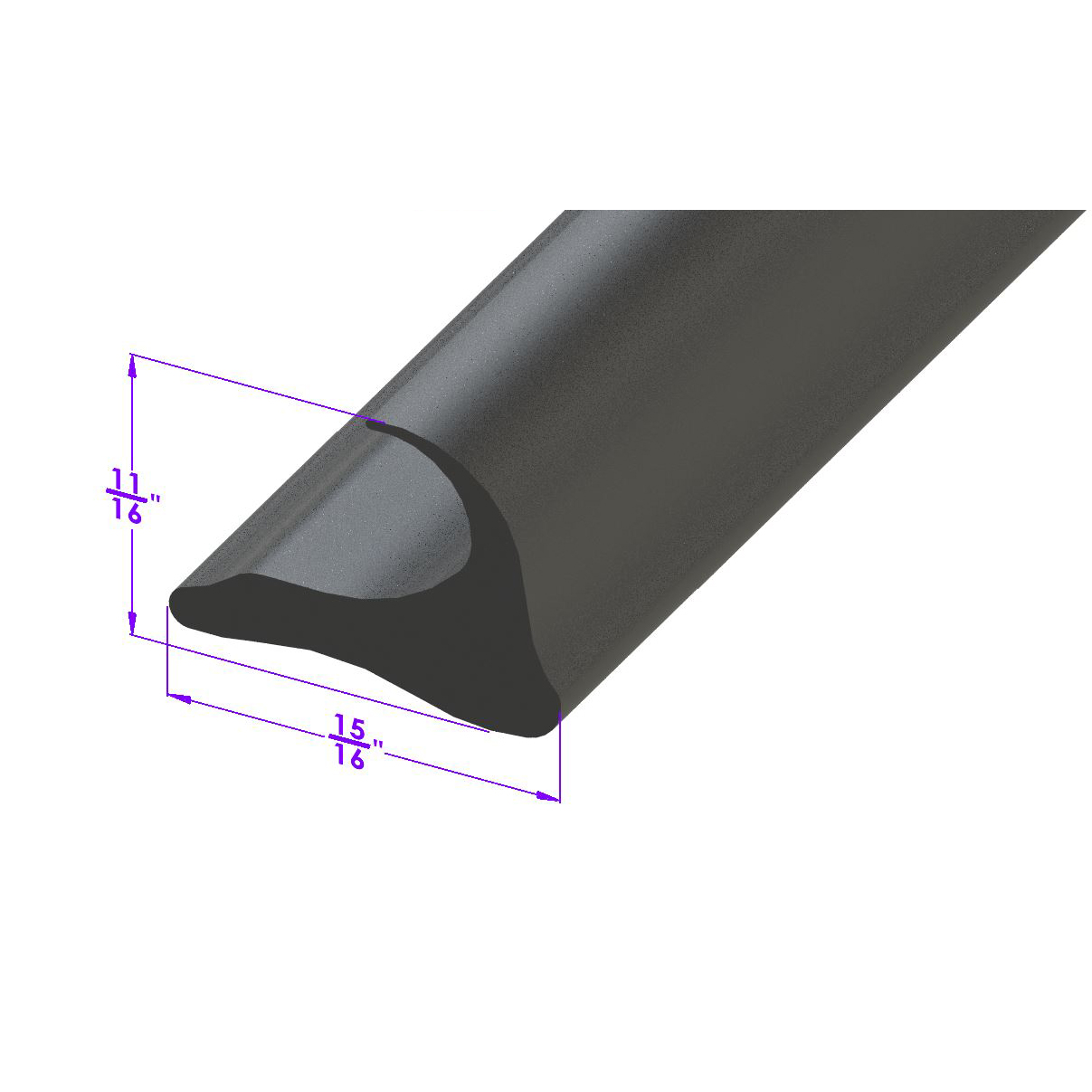 1950 Willys JEEPSTER Side Roof Rail Seal. Fits in metal retainer-LP 12-ASide Roof Rail Seal. Fits in metal retainer. Sold by the foot
1950 Willys JEEPSTER Side Roof Rail Seal. Fits in metal retainer-LP 12-ASide Roof Rail Seal. Fits in metal retainer. Sold by the foot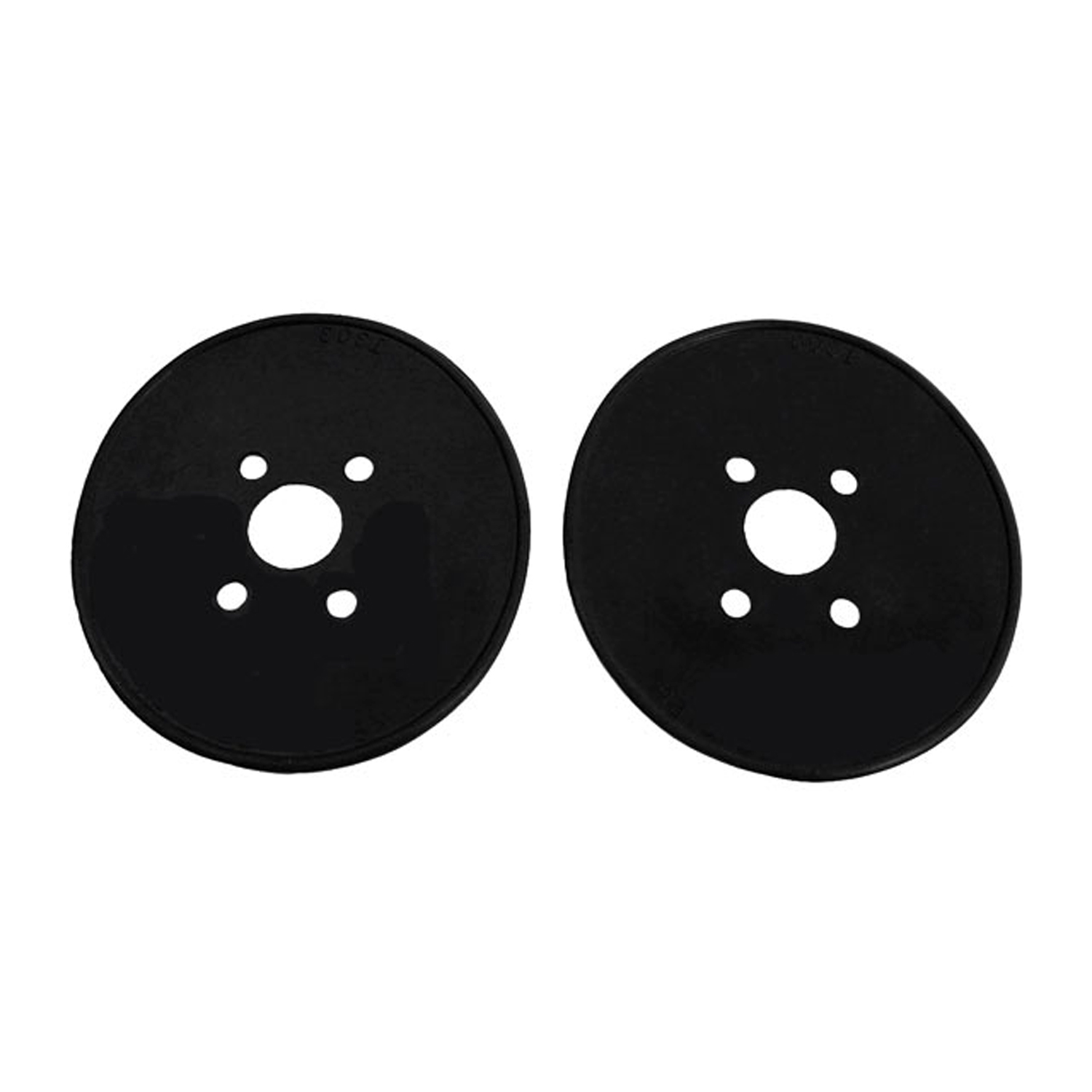 1950 Willys JEEPSTER Tail-light Pads. 5-1/4" wide X 5-5/8" long. Pair-MP 1303Tail-light Pads. 5-1/4" wide X 5-5/8" long. Pair
1950 Willys JEEPSTER Tail-light Pads. 5-1/4" wide X 5-5/8" long. Pair-MP 1303Tail-light Pads. 5-1/4" wide X 5-5/8" long. Pair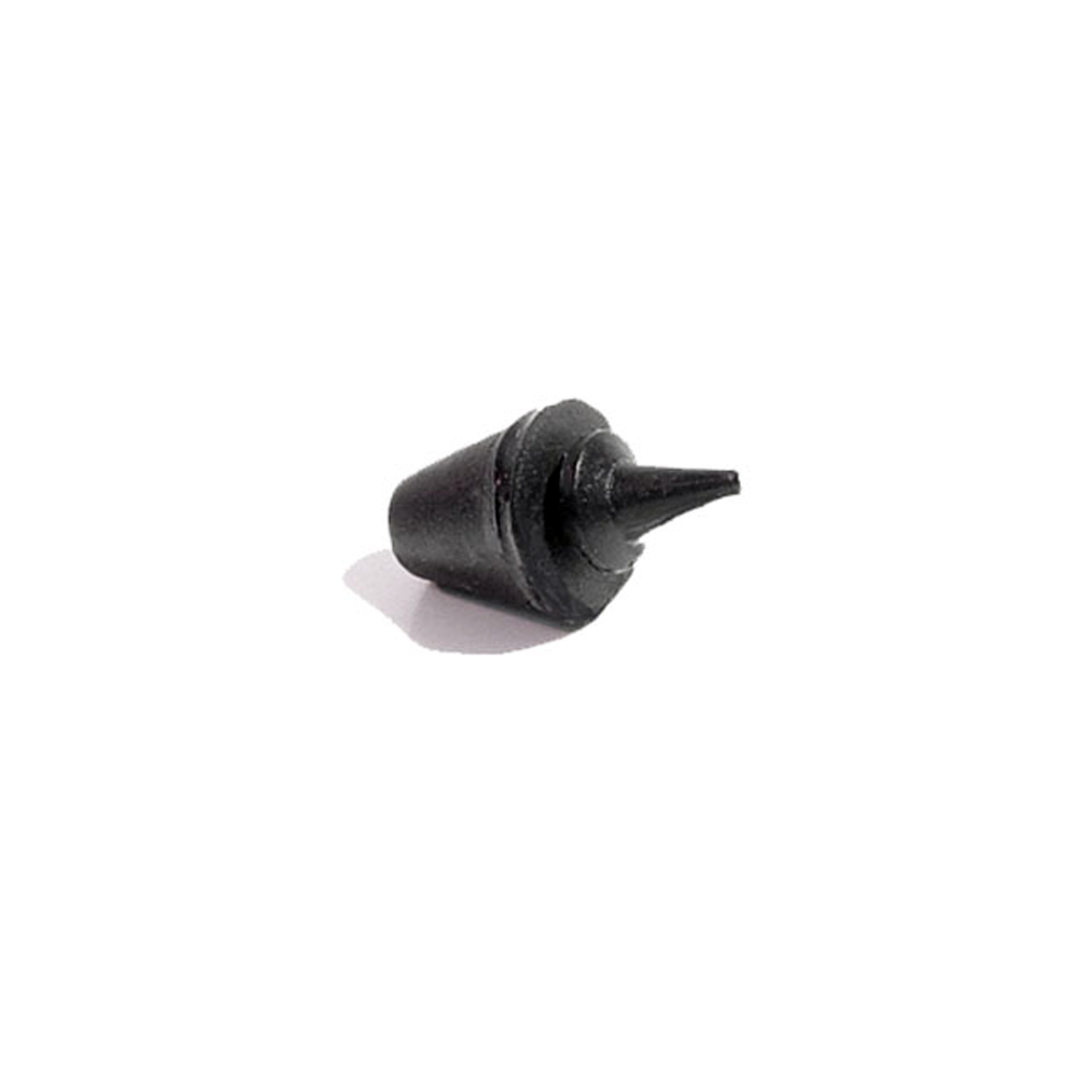 1950 Willys JEEPSTER Glove Box Bumper. Each-SB 83Glove Box Bumper. Each
1950 Willys JEEPSTER Glove Box Bumper. Each-SB 83Glove Box Bumper. Each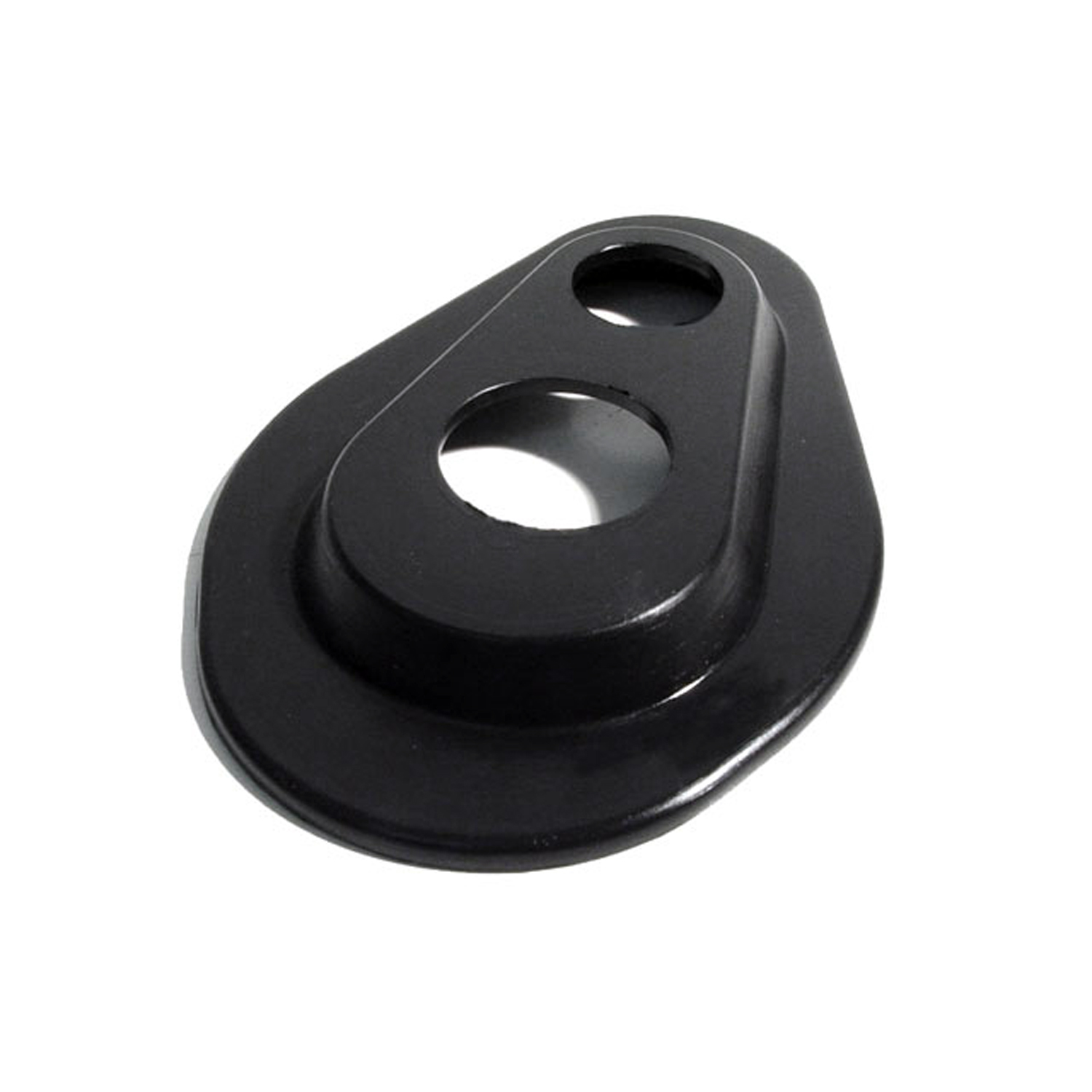 1950 Willys JEEPSTER Steering Column Grommet. 4-1/2" wide X 6" long. Each-SC 10Steering Column Grommet. 4-1/2" wide X 6" long. Each
1950 Willys JEEPSTER Steering Column Grommet. 4-1/2" wide X 6" long. Each-SC 10Steering Column Grommet. 4-1/2" wide X 6" long. Each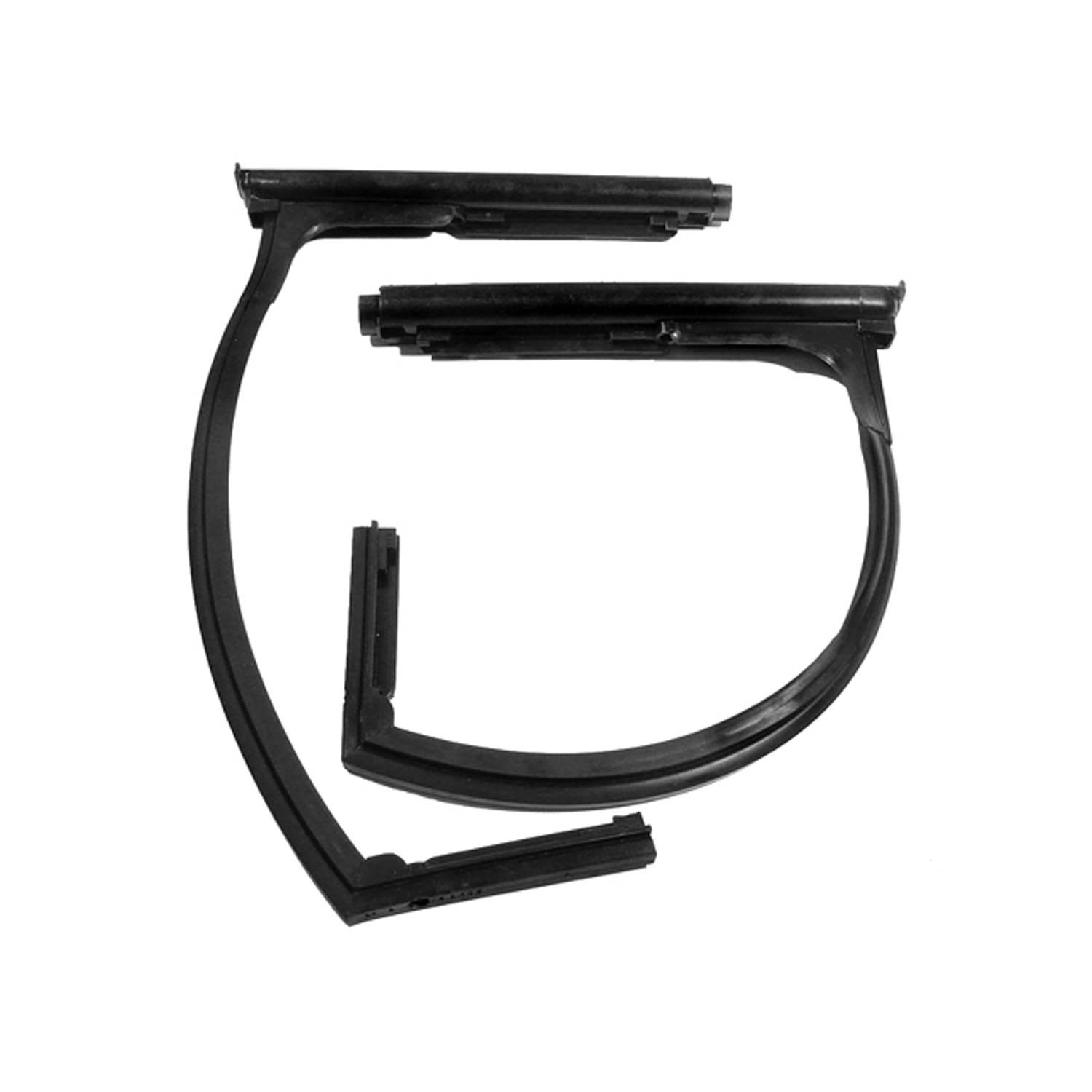 1950 Willys JEEPSTER Front Vent Window Seals -WR 9600Front Vent Window Seals. Will not fit Trucks or Station Wagons. Pair
1950 Willys JEEPSTER Front Vent Window Seals -WR 9600Front Vent Window Seals. Will not fit Trucks or Station Wagons. PairWhy Choose Metro?
For over 100 years, Metro Moulded Parts has been the pinnacle of quality in classic car restoration parts. Our commitment to precision and authenticity in every component ensures a perfect fit and an OEM-level appearance.
- Expert Craftsmanship & Quality: Each part is a testament to our dedication to reliability and perfection, crafted from original designs and thoroughly tested.
- Advanced Technology: We use cutting-edge techniques to create flawless, long-lasting parts that surpass others in performance.
- SuperSoft Sponge – The Ultimate Door Seal: Not only are our door seals 30% softer than competitors', but they're also guaranteed to never leak. They effectively reduce wind and road noise, enhancing your classic car's comfort and driving experience.
- Proudly American: Our parts are a product of American craftsmanship, made in the USA with a spirit of excellence and heritage.
- Unrivaled Warranty: We back our products with a 30-year industry-leading warranty, a testament to our confidence in their quality.
Join us in preserving the legacy of classic cars with parts that are crafted for perfection, not just made.

